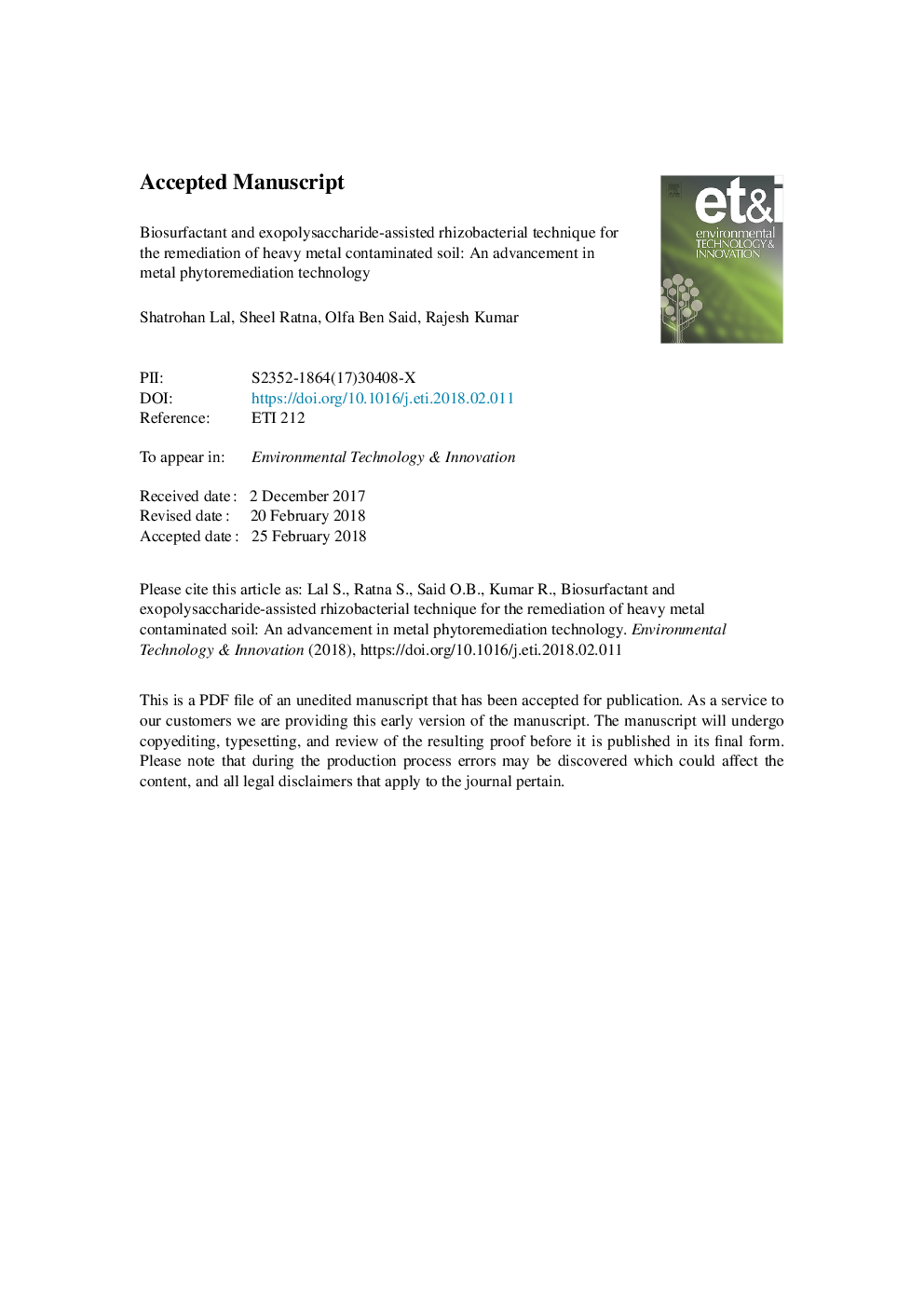| Article ID | Journal | Published Year | Pages | File Type |
|---|---|---|---|---|
| 8858008 | Environmental Technology & Innovation | 2018 | 44 Pages |
Abstract
Biosurfactant and exopolysaccharide producing plant growth promoting rhizobacteria can be a best tool for increasing the efficiency of plant assisted remediation of heavy metal contaminated soil; because they can thrive in the stressful environment in a luxuriant way, support plant growth and also contribute to the remediation process. Heavy metals are a noteworthy environmental pollutant and are regarded as biosphere hazard. Numerous chemically based techniques are used to enhance the efficacy of phytoremediation; however, most of them are ecotoxic, highly expensive and lead to incomplete removal of pollutants. To mitigate these technical inherent and to ensure complete removal of toxic heavy metals from soil, an advanced biological tool is the use of biosurfactant and exopolysaccharide-producing rhizobacteria. This can be a promising technique, that has been operative in nature and is cost effective, eco-friendly, efficient and having socio-economic importance over other conventional remediation techniques as well as sustainable for the environment. The present article critically reviews the potential role of root-associated metal resistant, exopolysaccharide and biosurfactant producing rhizospheric bacteria to remediate heavy metal contaminated soil and highlight some insight mechanisms for exploitation of plants and associated rhizobacterial interactions for enhancing heavy metal remediation.
Related Topics
Life Sciences
Environmental Science
Environmental Chemistry
Authors
Shatrohan Lal, Sheel Ratna, Olfa Ben Said, Rajesh Kumar,
